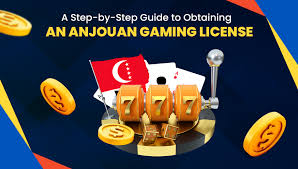The global gaming industry is a billion-dollar sector that kahnawake gambling license encompasses online gaming, ịkụ nzọ egwuregwu, cha cha, na ndi ọzọ. As this market grows, so does the need for regulatory oversight to ensure fair play, consumer protection, and lawful operations. A gaming license is a critical component of this framework, providing businesses the legal authority to operate within this dynamic industry.
This article explores the concept of gaming licenses, their importance, ụdị, and the process involved in obtaining one.
What is a Gaming License?
A gaming license is an official authorization granted by a regulatory authority that allows an entity to conduct gambling or gaming activities legally. These licenses are issued by government bodies or gaming commissions in different jurisdictions, each with its own set of regulations and requirements.
Licenses cover a range of gaming activities, na nsonye:
- Online Gambling: Poker, ohere mpere, and virtual casino games.
- Ịkụ nzọ egwuregwu: Online and offline wagering on sports events.
- Land-Based Casinos: Brick-and-mortar establishments offering gambling games.
- Lotteries and Bingo: Both online and traditional formats.
The Importance of Gaming Licenses
- Legitimacy and Trust: Holding a gaming license reassures players and stakeholders that the operator is legitimate and adheres to strict regulatory standards.
- Consumer Protection: Licensed operators are required to follow rules that protect players, including secure payment systems, fair games, and data privacy.
- Access to Financial Services: Banks and payment processors often require a gaming license to process transactions for gambling-related businesses.
- Nnabata iwu: Operating without a gaming license can result in severe penalties, including fines, business closure, and legal action.
Types of Gaming Licenses
Gaming licenses vary based on jurisdiction and the type of gaming activity. Common categories include:
- Remote Gaming Licenses: For online platforms offering gambling services.
- Sports Betting Licenses: For businesses that facilitate betting on sporting events.
- Casino Licenses: For operators running land-based or online casinos.
- Lottery Licenses: For companies conducting lottery draws, either physically or online.
Some jurisdictions issue comprehensive licenses covering multiple gaming types, while others require separate licenses for each activity.
How to Obtain a Gaming License
The licensing process is rigorous, designed to ensure that only credible and compliant businesses operate in the gaming industry. Here’s a general overview of the steps involved:
- Research the Jurisdiction: Each country or region has unique licensing requirements, fees, and compliance standards. Popular jurisdictions for gaming licenses include Malta, Gibraltar, Curaçao, and the Isle of Man.
- Prepare Documentation: This typically includes business registration papers, proof of financial stability, technical systems certification, and a detailed business plan.
- Undergo Background Checks: Regulatory authorities often conduct thorough checks on the company, its directors, and major stakeholders to ensure a clean legal and financial history.
- Submit an Application: Once the documentation is complete, submit the application along with the required fees.
- Compliance Audits: Some jurisdictions may require periodic audits to ensure ongoing compliance with licensing conditions.
Popular Jurisdictions for Gaming Licenses
- Malta: Known for its stringent regulatory framework and credibility, Malta offers one of the most respected gaming licenses globally.
- Curaçao: A cost-effective option, Curaçao licenses are easier to obtain but may lack the prestige of European counterparts.
- Isle of Man: Favored by high-profile gaming operators, this jurisdiction provides a robust legal framework and excellent infrastructure.
- Gibraltar: Home to many large betting companies, Gibraltar offers a well-regulated environment and EU access (though post-Brexit regulations may vary).
Challenges in Obtaining a Gaming License
- High Costs: Licensing fees, legal consultations, and compliance requirements can be expensive, especially for start-ups.
- Stringent Regulations: Jurisdictions like Malta and the UK Gambling Commission impose strict rules to ensure integrity.
- Time-Consuming Process: The licensing process can take months to complete, requiring thorough preparation and patience.
The Future of Gaming Licenses
As the gaming industry continues to evolve, so too will licensing requirements. Emerging trends such as blockchain technology, cryptocurrency payments, and virtual reality gaming are already challenging traditional regulatory frameworks. Operators and regulators must work together to adapt to these changes, ensuring fair play and innovation coexist.
Mmechi
A gaming license is more than just a legal requirement; it’s a symbol of trust, fairness, and commitment to responsible gaming. Whether you’re an established gaming operator or a new entrant, understanding the licensing process is essential for long-term success. By choosing the right jurisdiction and adhering to regulatory standards, you can build a reputable gaming business that stands the test of time.

